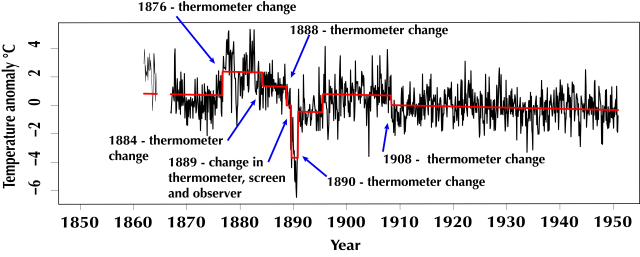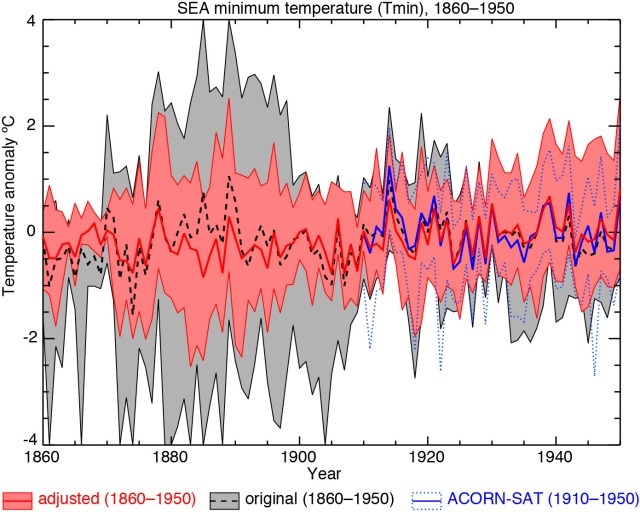Climatology is a mature science by now:
The basic results have not changed in decades,
the basics are based on natural science, where clear answers are possible,
a lot of scientists are involved,
climatology is well networked into the other sciences and
colleagues from other disciplines regularly contribute.
In such a situation, I find it perfectly normal for a citizen or politician to respond to outlandish claims of mitigation sceptics with: "Listen chap, you and I are both not qualified to discus such details. For me it is good enough that almost all scientists agree that there is a problem. If you really have a problem with some detail of the science, go write a scientific paper about it, but do not bother me with it." Or for short: "The science is settled".
You will have to search long and hard to find a scientist saying "the science is settled". Mostly because that is not how we scientists think: we are working on trying to improve our understanding and focus on the interesting parts that are not well understood. But when someone claims to have refuted the greenhouse effect, I feel perfectly entitled to say "the science is settled".
Some people even claim that greenhouse gasses cool the atmosphere. Sorry my life is too short to waste on such people. Some people even claim that the increases in CO2 are not man made. Sorry my life is too short to waste on such people.
Not only is there an overwhelming consensus on these topics, these are also topics that are pure natural science and they deal with the present or recent past. For such questions, an overwhelming consensus signals that the evidence is clear. I do not overestimate myself and think I can just barge in and explain the local experts what they are doing wrong. If someone else wants to do so, fine, they can write a scientific article about it. If they do not have the skills to write a scientific article, it is a legitimate question how it is possible that they are so sure that the science is wrong.
When someone asks me about the removal of non-climatic changes (inhomogeneities) from climate data, I can naturally not just answer "just trust me". That is my field of expertise and people have a justified expectation that I am able to answer such questions.
There are limits to this expectation. Eric Worrall recently asked on this blog: "How do you know the climate didn't actually cool?". And also did not provide any arguments. That signals such a degree of extremism that it makes no sense to talk to someone like that. A similar question from a scientist would also be another matter, but Worrall comes from a group that is known for misinformation and deceit. A reasonable answer would thus be: "the science is settled". Because it was here at my blog and he is somewhat known in mitigation sceptical circles, I actually mentioned the various lines of independent evidence that the world is warming. Then he was no longer interested in the discussion.
"The science is settled" is especially well suited for politicians. And they seem to have picked up this strawman lately. Seepage? Mass media are important for politicians and a short snappy slogan makes it more likely that your message is transported. Politicians are unfortunately supposed to extrude confidence and thus prefer not to explicitly say that they are not qualified. Good scientists should know the humble limits of their expertise. They can signal that they are good at science by acknowledging that the "question" is not their field of expertise. Unfortunately, scientists are also humans and some age groups and some fields of study seem to have more problems with admitting any limits.
Politicians may also like it that the slogan is rather ambiguous. The greenhouse effect itself is well understood. That greenhouse gas concentrations are increasing due to human activities is well understood. That CO2 emissions from fossil fuels, deforestation and cement are the main reason also. That it will continue if we do not change our energy system is also clear. However, what the future will exactly bring, how much the temperature will increase exactly is uncertain, if only because no one can predict how much CO2 we will emit before action is taken.
Also which impacts will be how big is quite uncertain. That is actually what worries me most. We are taking the climate system, on which our civilisation depends, outside the range we understand. There will be many (unhappy) surprises. The uncertainty monster is not humanities friend.
Thus, dear reader, please do not ask me why CO2 is a greenhouse gas, why the greenhouse effect does not cool the atmosphere, or even less interesting mitigation sceptical questions from the list of Skeptical Science. The science is settled!! But feel free to ask any questions on homogenization methods, about non-climatic changes in the historical stations measurements or why I am sure the climate is not cooling.
[UPDATE. Just remember a memorable quote by Justin Haskins, a blogger and editor at Heartland, a pro smoking and fossil fuel think tank: “The real debate is not whether man is, in some way, contributing to climate change; it’s true that the science is settled on that point in favor of the alarmists.” If he can, anyone can use the slogan: the science is settled.]
Tweet
Related reading
The US Republicans signal that the science is settled, that there is no need for further climate research and in doing so put the American public in harms way.Climatology is a mature field
A collection of early citations on settled science
Thou shalt not commit logical fallacies




.jpg)



